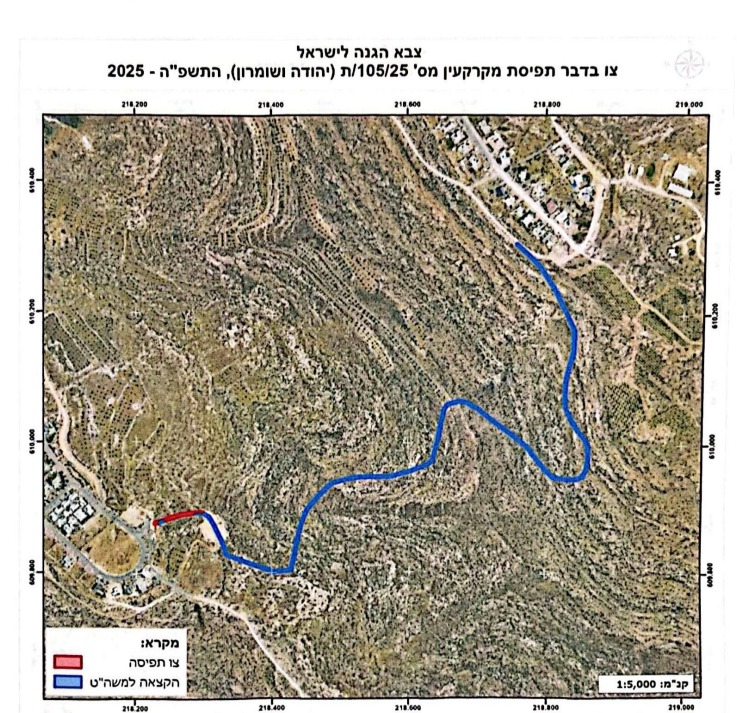RAMALLAH, October 16, 2010 (WAFA)- Olive picking event organized on 15 October to help farmers overcome risks of settler attacks, as Oxfam launches its new report on Palestinian olive oil trade
On October 15, Oxfam Great Britain (Oxfam GB) and the European Union (EU) sponsored an olive picking event in Kafr Qaddum, in the northern West Bank. Representatives from the European Union and Oxfam GB, together with the Kafr Qaddum Cooperative for Agricultural Development, Bethlehem University’s Fair Trade Development Center (FTDC) and the Palestinian Farmers Union (PFU), worked with international and Palestinian volunteers to help some of the neediest families in the village maximize the fruit of their labor this olive season.
Oxfam also released a new report on the Palestinian olive oil sector: “The road to olive farming, challenges to developing the economy of olive oil in the West Bank”. The report highlights how the olive sector has the potential for growth provided it overcomes the challenges of Israeli occupation and develops more efficient production and management practices.
The Kafr Qaddum Cooperative for Agricultural Development is one of 31 cooperatives benefiting from a project implemented by Oxfam GB and funded by the EU in the West Bank. The project is designed to increase market access and profitability for small and medium sized olive farmers. Through the project, the Kafr Qaddum cooperative is receiving support to increase the quantity and quality of its oil. The project also helps to certify cooperatives for Fair Trade and organic labelling, which means farmers’ products can be sold at a premium price in European and niche markets.
“I am very glad to see today that the farmers of the cooperative in Kafr Qaddum are putting in good use the new techniques they learned through training and that many other farmers from the village are picking up their practices' says the EU Representative, Christian Berger. 'This project is also about Fair trade certification and as demonstrated through the successful participation of Palestinian farmers in the 'Fair-trade Night' in London earlier this year, Palestinian olive oil is a very competitive product in the international market' he adds.
“This project is about raising market access through Fair Trade certification,” says EU Communications Officer Shadi Othman. “One of the key aspects of Fair Trade is getting farmers and cooperatives to establish support networks in their community. We’re not just picking olives. We’re putting down roots for sustainable development,” he said, adding that the olive harvesting event was being organized as a way to encourage community participation and volunteerism, as well as boosting community spirit, all of which are guiding principles of Fair Trade.
In villages like Kafr Qaddoum, where over 80% of the arable land is planted with ancient olive trees, income from the annual olive harvest can have a huge impact on farmers’ quality of life.
“This project is capital for communities like Kafr Qaddoum because Fair Trade certification means the farmers are guaranteed to get a fair price,” says Haitham Hassassneh, an Oxfam GB Livelihoods Officer.
“But the benefits go beyond the price. When the farmers are making a sustainable income they have an increased capacity to resist policies that compromise their harvest and they are also encouraged to keep tending to their trees and to stay on their land,” Hassassneh explained.
Giving farmers incentives to remain on their land in Kafr Qaddum is crucial given the difficulties they face. Kafr Qaddum is surrounded by the Qaddomim settlement bloc, which is comprised of five settlements housing around 4,000 settlers. In addition to land confiscation, harassment, and settler violence - which often peaks during the olive harvest season, residents of Kafr Qaddum suffer from severe restrictions on access and movement due to the Wall.
A new Israeli outpost, illegal under both international and Israeli law, has been erected on Kafr Qaddum’s agricultural land, putting the community at heightened risk of violence. Volunteers will concentrate on helping families whose trees are located close to the outpost, as their presence usually helps deter settler attacks.









